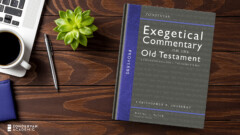A question I often receive is this one: “Can you give me some advice on writing a book review?” I’ll be the first to admit that I cannot tell you how to write an academic review or one you would want to submit to a journal. I became a book reviewer rather by trial and error and only through a very informal medium. Even then, I focus almost entirely on popular-level reviews of popular-level books. Having said that, I typically use a loose formula that I think can be helpful and that often resonates with readers.
Identify
As you write a book review, it is important to ensure you are properly understanding the book and its author. Therefore, the first thing to do is to identify the book’s topic, audience, purpose and and structure. Here are questions to ask and possibly answer in the opening paragraphs.
What is the book about? This is an obvious question and it is usually easy to answer. However, there are times when the author has a little trick up his sleeve and the question is not quite so simple.
Who is this book written for? Who does the author identify as his audience? You will almost always find this in the first few pages.
Why did the author write this book? What does he hope to accomplish through the book? How does he defend the simple fact that he dedicated time to preparing the book? What benefit will there be to you if you read it? Depending on the book’s format or genre, this may come in the form of a thesis statement the author means to prove. Alternatively, it may just be an idea he wishes to explore or a set of facts he wishes to teach.
How has the author structured the book? How does he progress from the first chapter to the last? Some books are heavily dependent upon a specific structure while other books are much less so. The more heavily dependent the book is upon a structure, the more important it is that you describe it.
What is unique about this book? What makes this book different from others and especially from others that deal with a similar topic? The author may make this clear in the book’s opening pages, or it may be something you need to look for on your own. The more books you read on a topic, the more you will be able to identify what sets one book apart from another.
Discuss
How well does the author succeed? Earlier you identified the book’s topic, audience, purpose and structure. Now you will want to tell your readers how well he succeeded in these things. Did he do justice to the topic? Did he write in such a way that this will appeal to his audience? Did he achieve his purpose? Did he follow a clear structure and was that structure helpful?
What strengths did you identify? What are some of the author’s and the book’s most notable strengths? What does he accomplish better than other similar authors and how is his treatment of the topic superior to similar books?
What weaknesses did you identify? It is unfair to only treat a book’s weaknesses, but it is equally unfair to pretend they do not exist. If a book is marked by notable weaknesses that take detract from its readability or the treatment of the topic, make a note of them.
Is it faithful to Scripture? This question is most important to ask when a book interacts with the Bible and claims to interpret Scripture, but is worth asking for any topic. If Scripture speaks to the topic, note whether the book treats the subject in a way that is consistent with the Bible.
How does it compare with other similar books? There is almost no topic that has only a single book written about it, so you do well to compare books to one another. This helps your reader narrow in on the best book on a topic. Does this book make a better case than others before it? Does it update arguments or interact with new facts? When and why should I read this treatment of the subject instead of another one?
What did the book mean to you? There is value in making a book review personal by speaking of what it meant to you. Did it encourage or strengthen you? Did it sadden or infuriate you? Did it bring you moments of joy in a difficult time? Do not neglect the personal touch!
Recommend
Having identified the book’s topic and purpose, and having discussed its strengths and weaknesses, it is time to tell your reader how they can or should respond to it.
Who should read it? Is there anyone who should read the book? Is there a category of person you are convinced ought to read it? If so, serve them by encouraging them to pick up a copy.
Who should not read it? Is there anyone who should not read it? If so, protect them by warning them away from it.
Who might read it? If it is not a book that is not exciting enough to command people to read or bad enough to command them not to read, then suggest some people who may benefit from it.
This is a loose format I follow in many of my reviews and I have found it quite effective in reaching a general audience with an interest in popular-level books. I hope you find it helpful!










